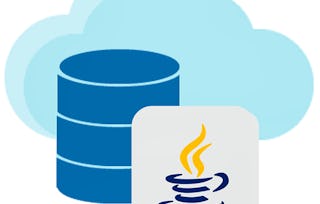Databases are the backbone of modern applications, powering everything from large scale enterprise systems to web applications.
This course gives you the comprehensive grounding you need to work with databases using Java programming. Whether you have a little or no knowledge of databases, if you’re keen to understand the different types of databases and how to work with these databases using Java, this course is for you! During the course, you’ll explore the fundamentals of databases and Java Database Connectivity (JDBC). You’ll get hands-on developing database applications using Spring Boot. Plus, you’ll work with Hibernate and explore other databases such as NoSQL, SQL Graph and time series databases. Throughout the course, you’ll complete hands-on labs and gain valuable practical experience applying your skills. Plus, you’ll complete a final project where you apply your knowledge to a real-world scenario; great for chatting about in interviews! If you’re looking to build the job-ready skills you need to develop Java applications with databases, enroll today.
















